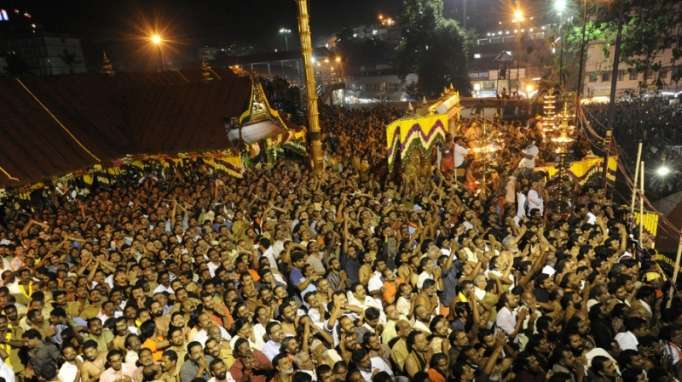Although the 12th century Sabarimala temple in the southern state of Kerala attracts tens of millions of pilgrims every year, women who are in their menstruating years (which the temple defines as between the ages of 10 and 50) have not been allowed to be among them - until now.
“Historically women have been treated with inequality,” India's Chief Justice Dipak Misra said in the Friday ruling, one of his final judgments before he steps down next week. “Society has to undergo a perception shift.”
The lone dissenting judge on the five-judge bench was, perhaps surprisingly, a female. "Religious practices cannot solely be tested on the basis of the right to equality. It is up to the worshippers, not the court, to decide what is the religion’s essential practice," Justice Malhotra said.
The case was brought forth by a group of five women who claimed the rule violated the fundamental right to equality and protection from discrimination on the ground of gender, India Today reported.
But according to authorities at the temple, banning women of child-bearing age from entering comes from a centuries-old tradition. They say it is essential to the rites related to Ayyappan, the temple's chief deity.
They also say they will appeal to the Supreme Court for a review of the ruling.
“We will go for a review petition after getting support from other religious heads,” said A. Padmakumar, president of Travancore Devaswom Board which manages the hilltop temple, as quoted by Reuters.
Menstruating women are regarded as unclean in many Hindu communities, as well as in Nepal, where the government recently made the practice of forcing women into cowsheds while during menstruation illegal.
The Friday ruling is the latest in a number of Supreme Court rulings which have seen India relax many of its conservative and controversial laws. On Thursday, the court decriminalized adultery. Earlier this month, it scrapped a law banning gay sex.
RT
More about: India
















































